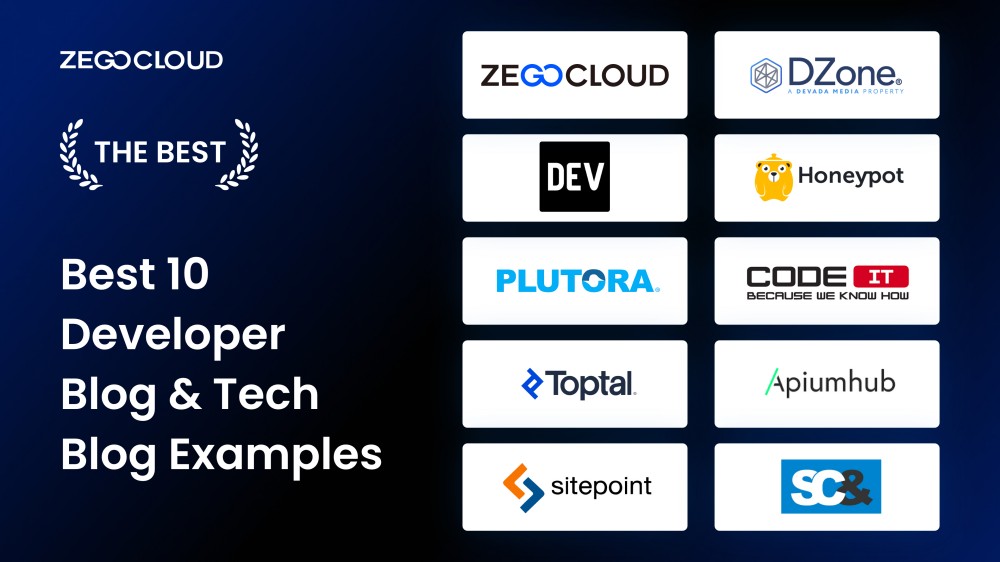Leading Factors to Follow the Best tech blog for Tech News and Tutorials
Leading Factors to Follow the Best tech blog for Tech News and Tutorials
Blog Article
How Blockchain Innovation Is Revolutionizing Data Safety
Blockchain innovation is essentially modifying the landscape of data safety by introducing a decentralized framework that assures enhanced openness and durability. Unlike typical systems, which depend on central data repositories, blockchain distributes data throughout a network, decreasing vulnerabilities and single factors of failing. Making use of sophisticated cryptographic techniques makes certain that information stays tamper-proof, cultivating trust fund among customers and stakeholders. As markets swiftly adapt to this innovation, questions occur about its more comprehensive influence and prospective obstacles. What ramifications does this change hold for future information protection approaches and regulative frameworks? The solutions may surprise you (Best tech blog).
The Basics of Blockchain
Blockchain technology, a revolutionary principle in electronic information management, fundamentally transforms exactly how info is stored and safeguarded. At its core, a blockchain is a distributed journal that tape-records deals throughout a network of computer systems, guaranteeing transparency and immutability.
Key to recognizing blockchain is the hashing procedure, which secures deal data into an unique alphanumeric code. This cryptographic function guarantees that any alteration in the transaction data leads to a totally different hash, thereby safeguarding against meddling. The agreement mechanism, an additional essential part, confirms and confirms new purchases through a network of nodes, thus eliminating the demand for a centralized authority.
In addition, blockchain's append-only framework makes certain that data, when added, can not be erased or modified. This particular warranties a irreversible and proven record of deals, fostering count on among participants. Because of this, blockchain supplies a robust framework for information integrity, supplying markets a reputable technique for tracking and managing digital info in a protected, transparent way.
Decentralization and Safety And Security
Decentralization, a core concept of blockchain technology, substantially improves data protection by distributing control across a network as opposed to relying upon a particular, central entity. This circulation alleviates the danger of solitary points of failure, which are prevalent in traditional centralized systems. By dispersing data throughout various nodes, blockchain ensures that even if one node is compromised, the entire network remains safe. This redundancy not only fortifies the integrity of the data yet also boosts its durability to cyberattacks and system failures.

In addition, decentralization encourages users with better control over their information. Each participant in the network has access to the whole blockchain, enabling them to validate and investigate transactions individually. This transparency cultivates trust fund among individuals, as they do not need to depend on a main authority to guarantee data integrity. Generally, decentralization contributes in boosting data safety in blockchain networks.

Cryptographic Methods
At the heart of blockchain modern technology, cryptographic techniques play a critical role in protecting data, making sure both confidentiality and integrity. These strategies are foundational to the blockchain's capacity to securely videotape transactions in a decentralized manner. Cryptography in blockchain uses a mix of asymmetric and symmetrical algorithms to encrypt information, making it obtainable only to accredited parties - Best tech blog. Public and private key sets are main to this procedure, allowing for secure authentication and identification confirmation without disclosing delicate details.
Hash functions are another important element, transforming input data into a fixed-size string of you can try here characters, efficiently producing an unique digital finger print for each block. This ensures that any effort to change the information will cause an entirely different hash, thus keeping the immutability of the blockchain. Moreover, digital trademarks confirm the authenticity and stability of deals, giving a layer of non-repudiation.
The decentralized nature of blockchain, combined with robust cryptographic strategies, gets rid of the demand for middlemans, reducing prospective vulnerabilities. As blockchain innovation evolves, advancements in cryptography such as zero-knowledge evidence and homomorphic security remain to boost protection actions, even more fortifying data defense in this cutting edge digital journal system.
Use Situations Throughout Industries

In the medical care sector, blockchain makes certain the safe storage space and sharing of client documents, advertising interoperability while guarding delicate data from unauthorized gain access to. This innovation encourages individuals with control over their case history and assists in seamless control among doctor.
Supply chain administration benefits considerably from blockchain's unalterable ledger, which makes certain traceability and credibility of products from origin to customer. By enhancing transparency, blockchain aids mitigate concerns such as counterfeiting and unethical sourcing.
In addition, blockchain's decentralized nature is improving the power industry by making it possible for peer-to-peer energy trading, where customers can buy and offer excess renewable energy straight. This fosters an extra sustainable and reliable power environment.
In the realm of intellectual property, blockchain supplies a tamper-proof system for makers to sign up and secure their jobs, making sure rightful acknowledgment and fair settlement. These varied usage instances underscore blockchain's role as a critical pressure in redefining data safety throughout sectors.
Future of Information Protection
As we look to the future of information protection, blockchain technology is poised to play a crucial function in protecting digital details. With its decentralized and immutable qualities, blockchain supplies a robust structure for securing delicate data versus unapproved gain access to and cyber threats. This innovation makes certain that when information is taped, it is virtually difficult to modify without detection, thus giving a substantial Discover More benefit over traditional data storage space methods.
The combination of blockchain with other innovative modern technologies, such as expert system and the Net of Points (IoT), is expected to enhance information security methods even more. By leveraging clever contracts, companies can apply and automate safety methods, minimizing human mistake and increasing effectiveness. Additionally, blockchain's capability to give transparent and traceable deals will certainly boost depend on and accountability in data management techniques.
As regulative landscapes progress, blockchain's compliance-friendly nature will end up being progressively appropriate. It can help organizations fulfill rigorous information security guidelines, such as the General Information Protection Guideline (GDPR) and the California Customer Personal Privacy Act (CCPA), by providing proven documents of information processing tasks. Eventually, blockchain's special attributes setting it as a transformative tool in the ongoing pursuit to protect the digital globe against ever-evolving cyber threats.
Final Thought
Blockchain innovation represents a paradigm change in data security by leveraging decentralization and cryptographic strategies to improve openness, count on, and information go to website integrity. Its capacity to get rid of solitary points of failing and utilize agreement systems substantially lowers the risk of fraudulence and cyberattacks. This ingenious structure not only empowers individuals with greater control over their information but additionally aligns with regulative conformity. As cyber dangers evolve, blockchain arises as an important device for robust data defense across numerous markets.
Blockchain modern technology is basically modifying the landscape of data safety by presenting a decentralized structure that assures improved transparency and strength. Unlike typical systems, which depend on central information repositories, blockchain distributes data across a network, lessening susceptabilities and single points of failure.Decentralization, a core principle of blockchain innovation, dramatically boosts information security by dispersing control throughout a network instead than counting on a single, central entity.At the heart of blockchain technology, cryptographic strategies play an essential duty in safeguarding information, ensuring both confidentiality and integrity.Blockchain technology represents a paradigm shift in information security by leveraging decentralization and cryptographic techniques to enhance transparency, trust, and information stability.
Report this page